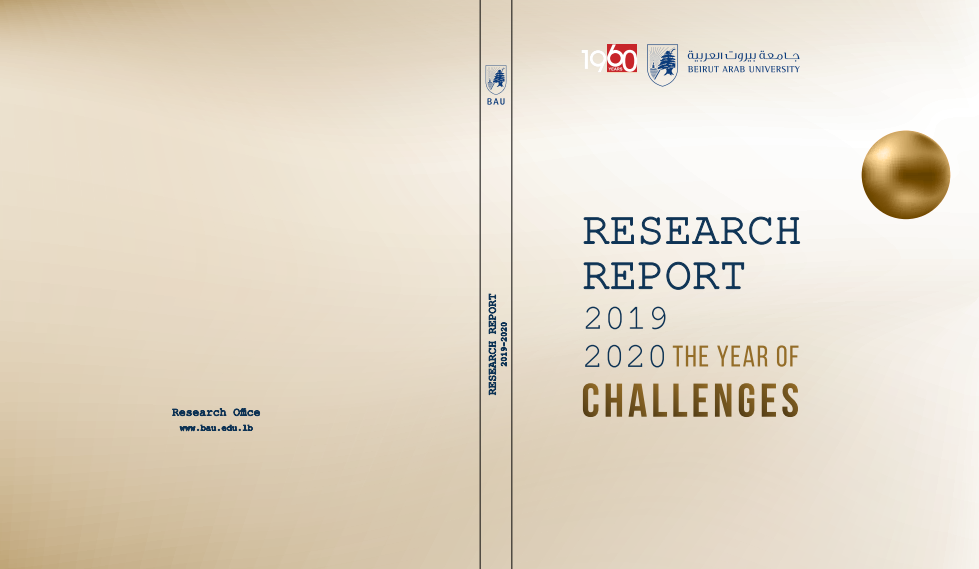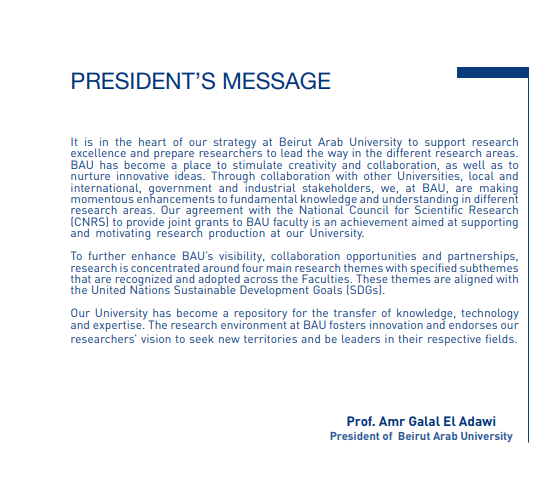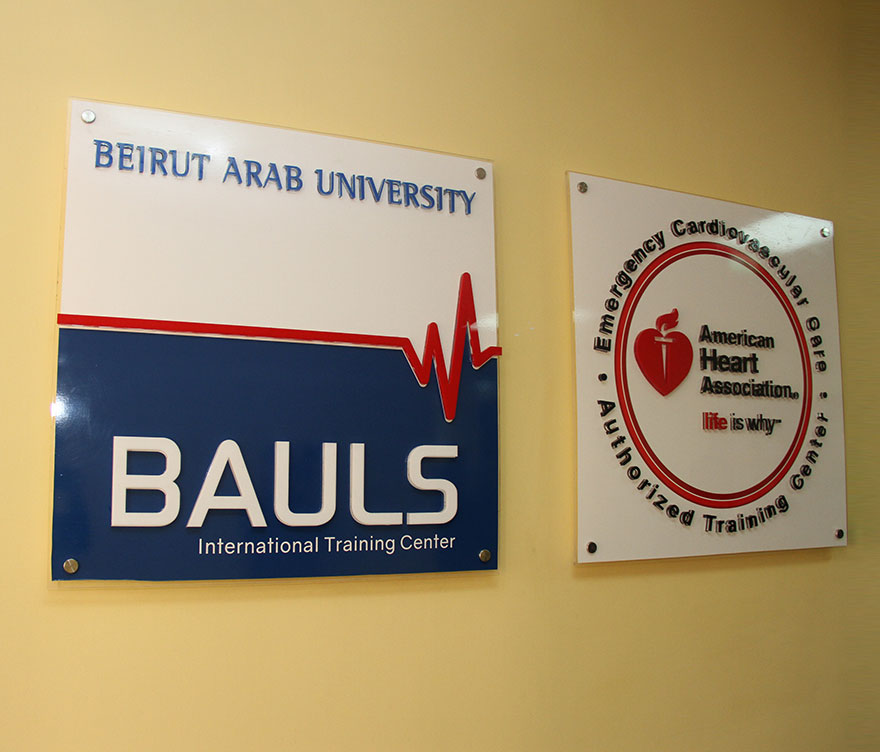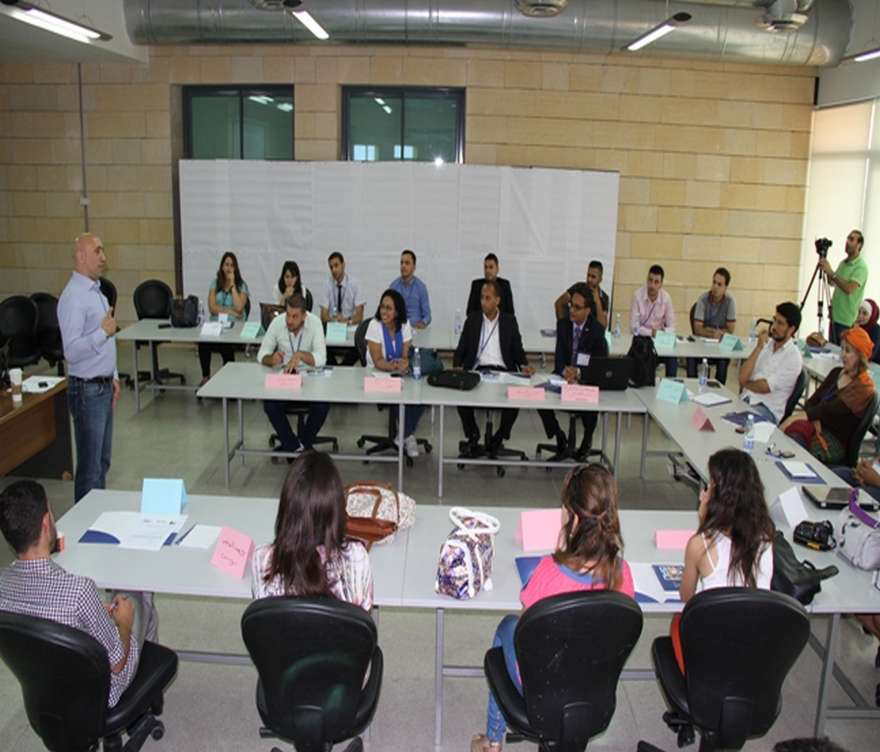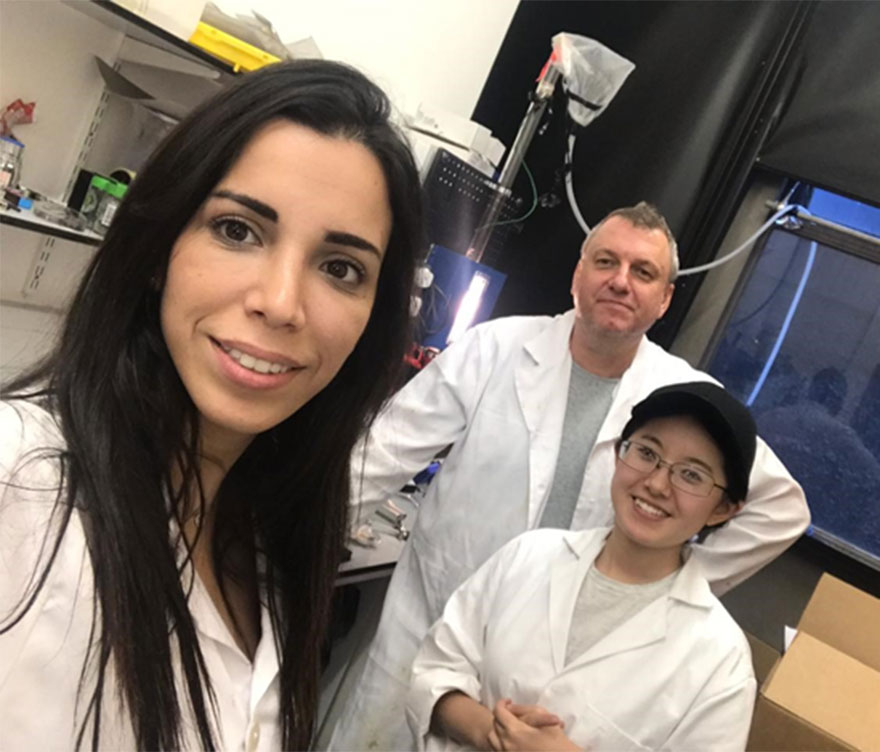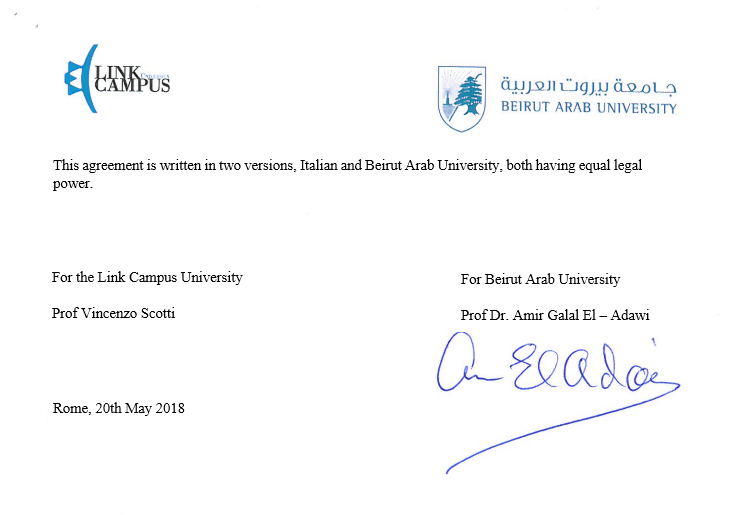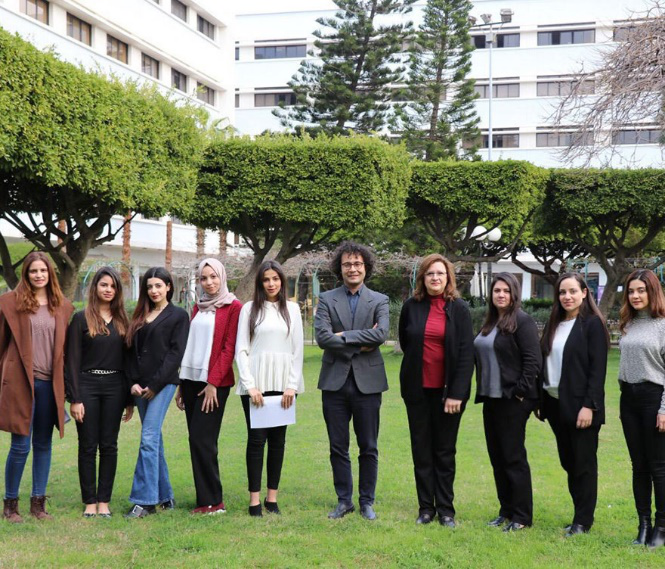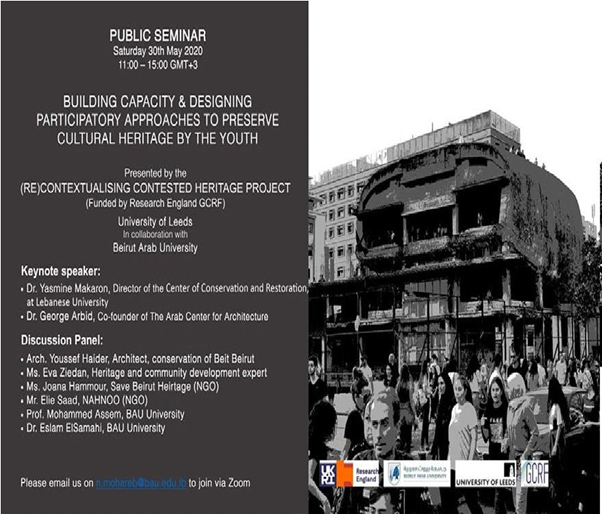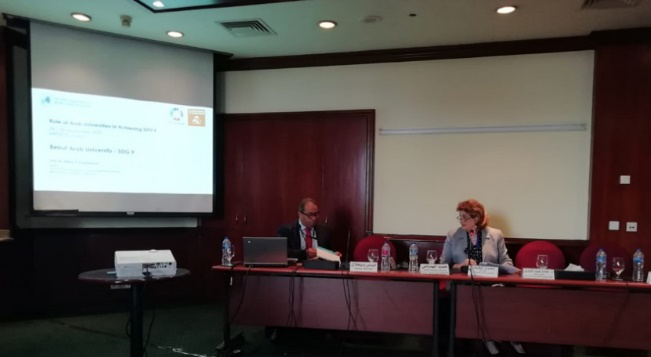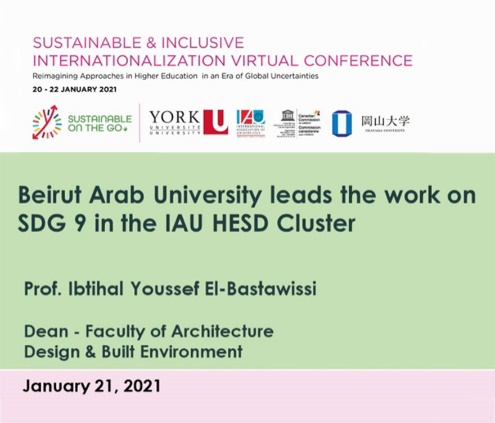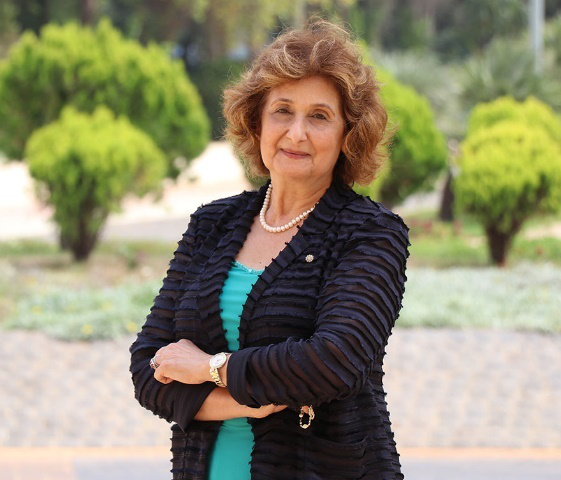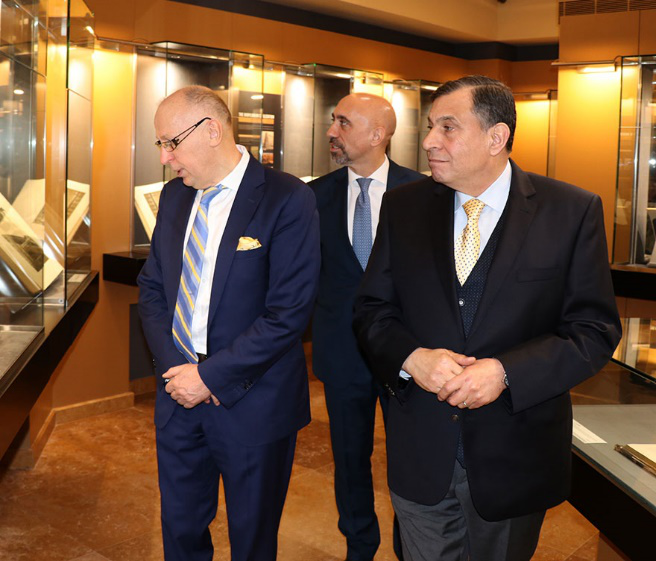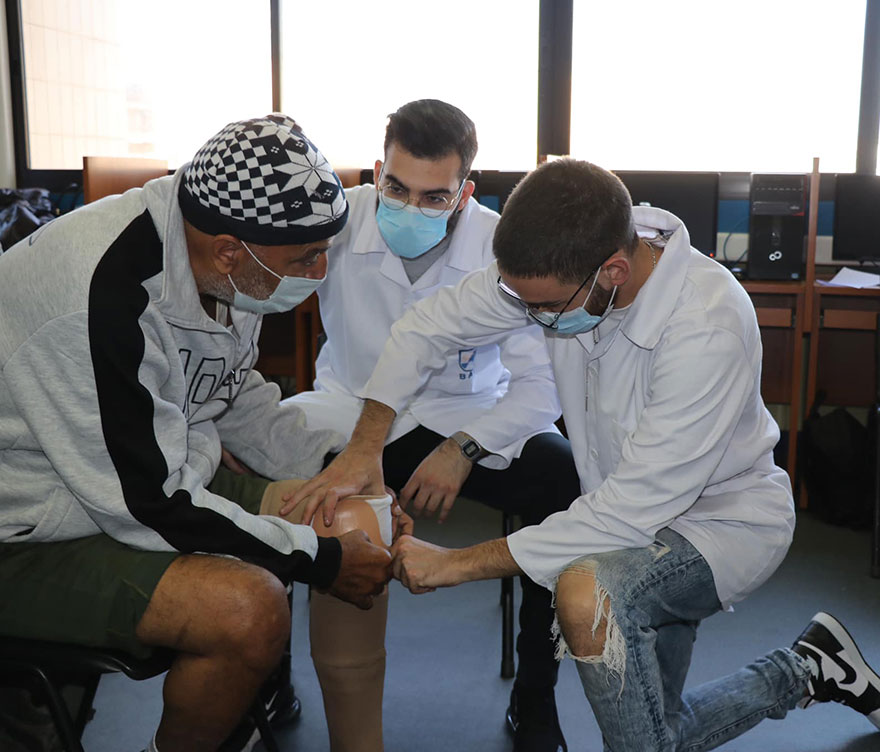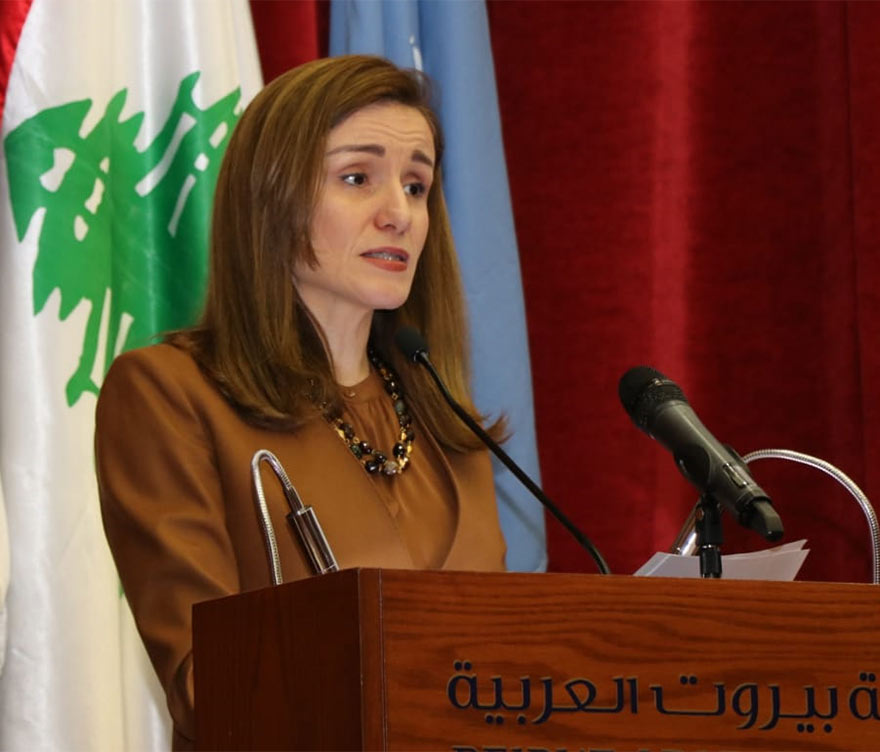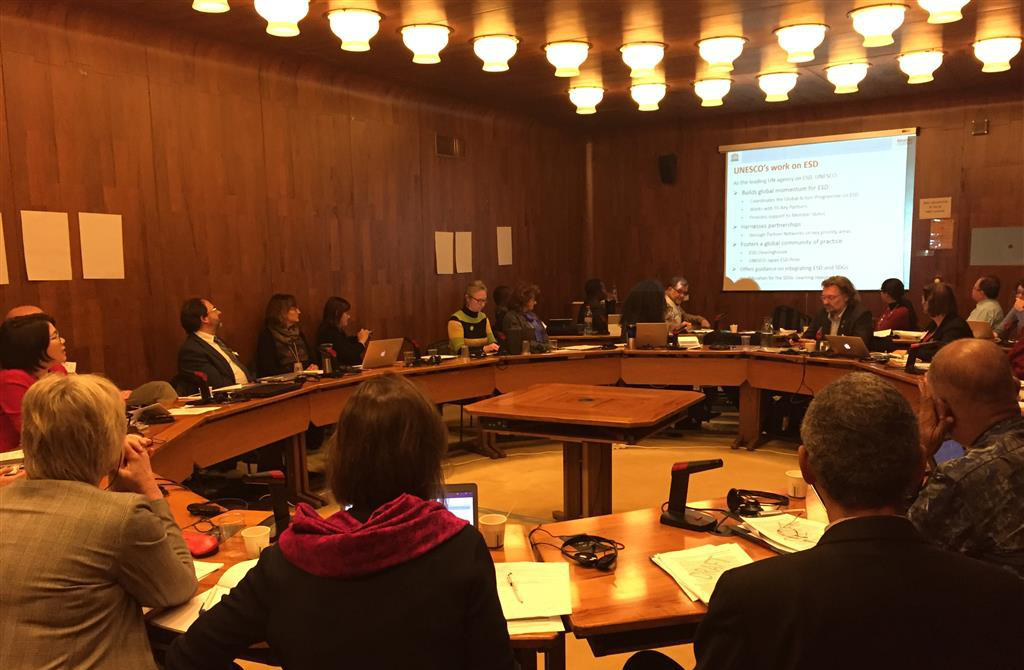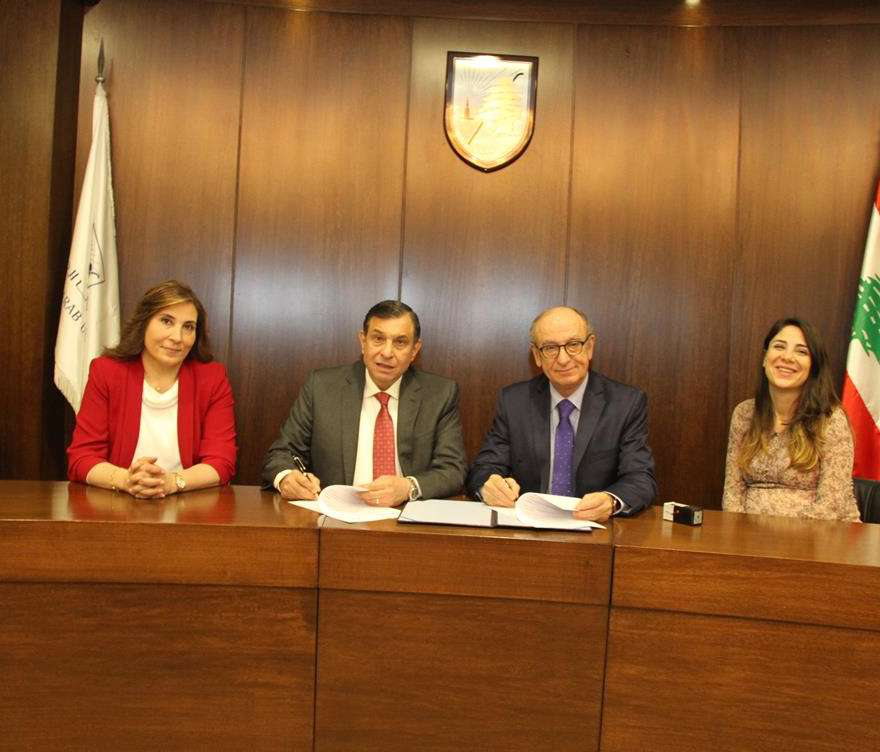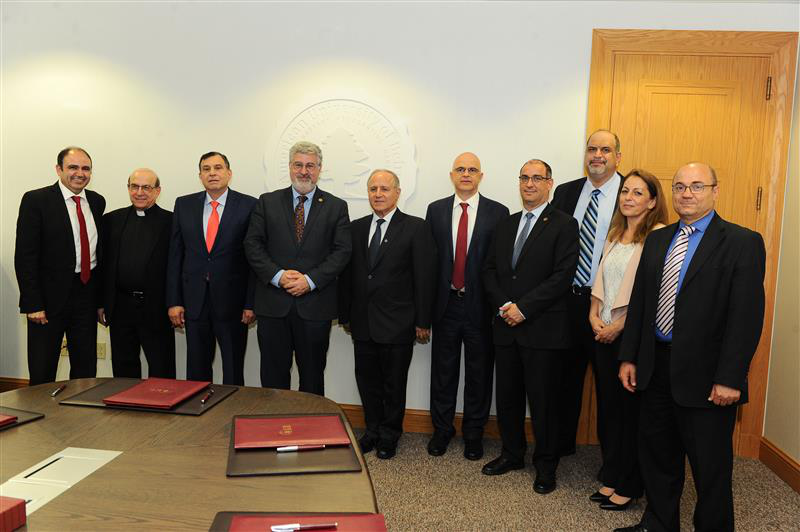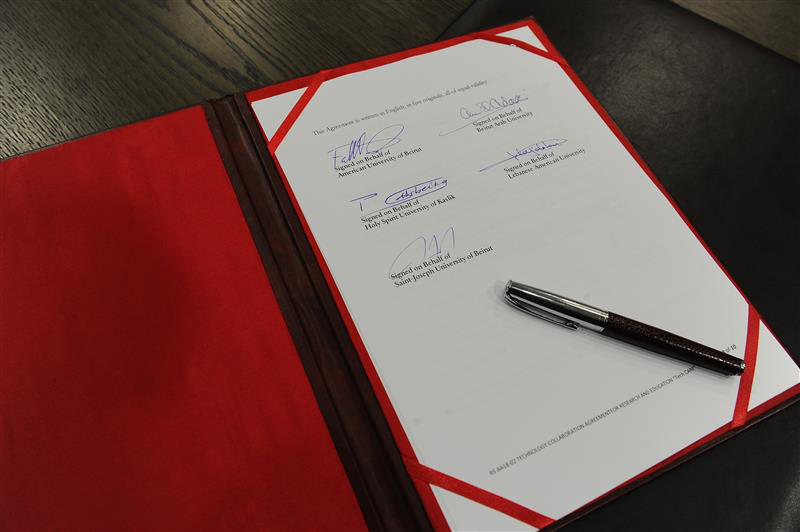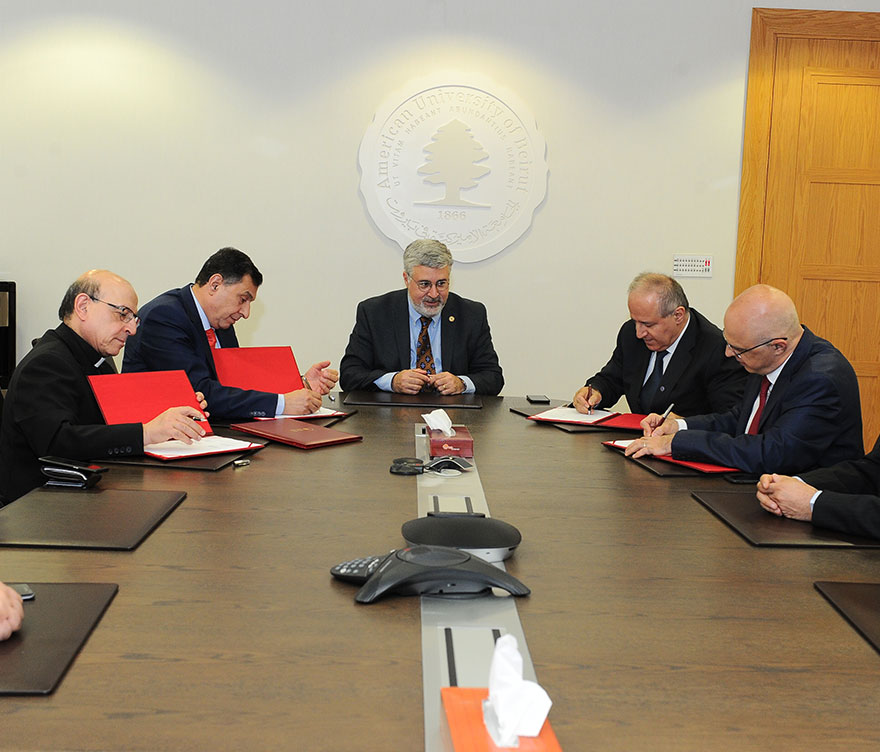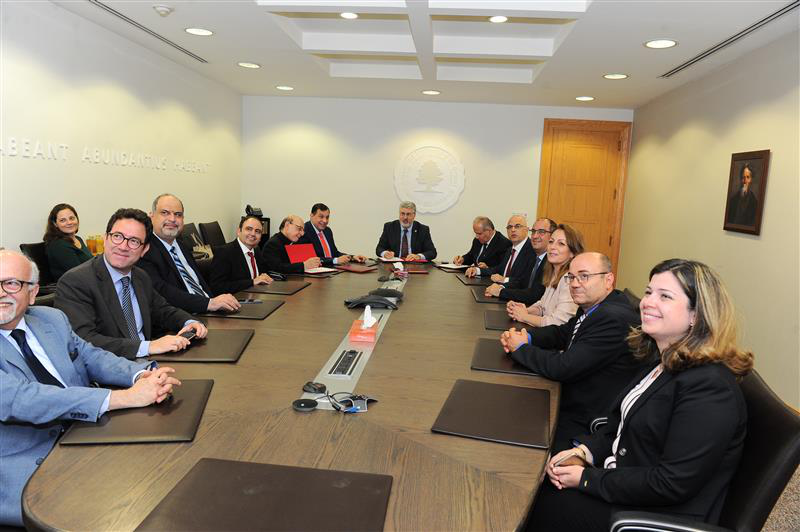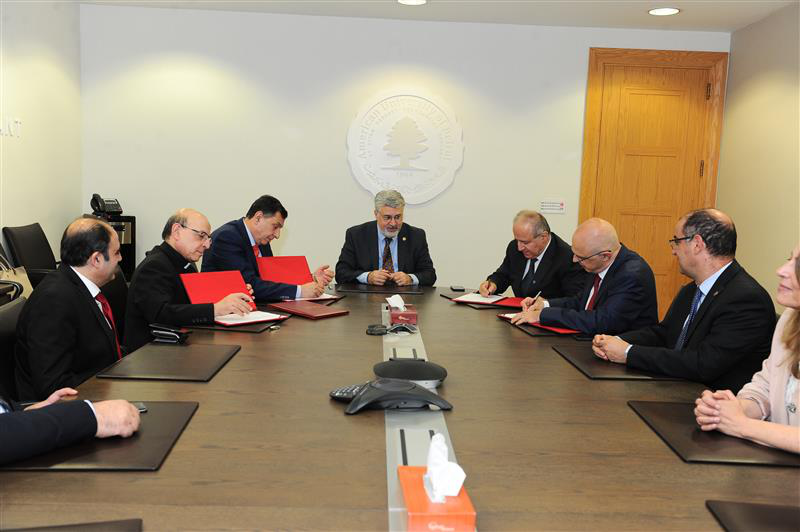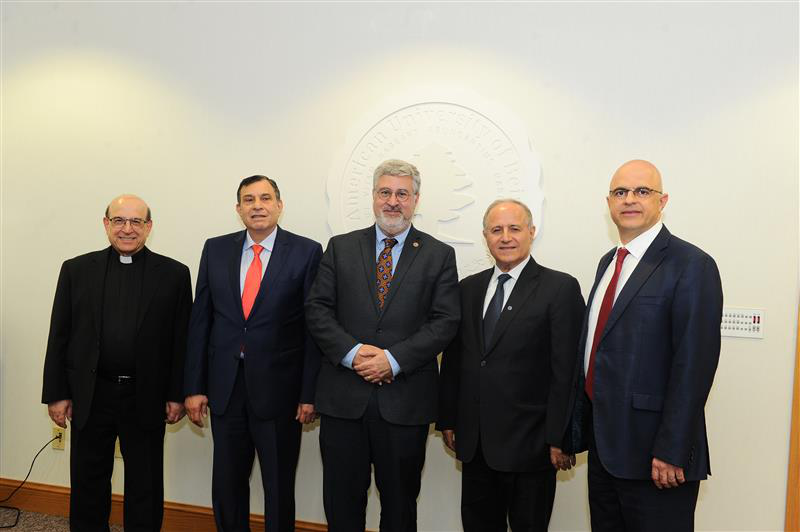International collaboration and research, comparative approaches and develop international best practice on tackling the SDGs
BAU aims to support research excellence and is committed to focusing on the development of research to ensure its quality and innovativeness by tackling some of the most critical intellectual and social issues of the day.
BAU's research does not only aim at producing new knowledge in the fields of medicine, technology, business and science, but its main focus is innovative research that yields actionable knowledge to improve the lives of individuals and communities in Lebanon and around the world.
BAU's faculty and researchers demonstrate their commitment to academic excellence and serving others. Our scholars engage in research and scholarship that extend beyond the classroom walls and around the globe. Researchers include Faculty members, visiting scholars, post-doctoral fellows, and graduate and undergraduate students, and they collaborate with colleagues across the University, at affiliated institutions, and at other research institutions.
Our research centers, programs and institutes explore a diverse range of research topics from the science of medical discovery to dialogue on religious and political identity- making us a community devoted to understanding and improving the world around us. BAU's research office is dedicated to pursuing projects with research centers and Universities inside and outside Lebanon. The Research Office is concerned with following up on projects that are conducted within the University or on its behalf and coordinating all logistic matters related to publications and project funding.
The Deanship of Graduate studies and Research envisions BAU as a leading University in delivering excellence and relevance in research, and is recognized nationally and internationally as a center for innovative research.
Mission
The Deanship of Graduate studies and Research seeks to achieve excellence in the development and advancement of knowledge through research, learning, and creative endeavors. It is dedicated to stimulating and coordinating multidisciplinary research activities that are devised to provide practical solutions for socioeconomic growth and meet the needs of the community. Our mission is to provide exceptional support for BAU’s research community in order to promote research productivity by cultivating and supporting a robust research culture for all Faculty members and students through:
Integrating research into the University's intellectual and academic culture and identity.
Establishing new partnerships and providing guidance and support to help researchers.
Promoting and supporting ethical responsibility, integrity, regulatory compliance and performance in all aspects of research.
Setting policies and procedures that would support the University’s research agenda.
Providing guidance and direction to ensure that all BAU research is conducted in an ethical and responsible manner in compliance with University policies.
The President of Beirut Arab University Professor Amr Galal El Adawi signed a three years renewal agreement between Beirut Arab University Life Support (BAULS) with the Vice President International of the American Heart Association Mr. Michael Hulley. The agreement aims to train students according to the guidelines of the International Training Center, in addition to teaching the courses in Lebanon and provide training sites, trainers (Professors), students and the necessary material as per the request of American Heart Association to offer the following courses:
• Basic Life Support.
• Advanced Life Cardiac Support.
• Pediatric Advanced Life Support.
The faculty’s accreditation matched the highest international standards of training programs for the individuals who work in the health field, such as doctors and nurses; in accordance with the medical and legal procedures required by the Lebanese Orders, Syndicates and Hospitals. This agreement contributes to SDG4 and SDG3.
For the fourth consecutive year, the Human Rights Center at BAU concludes the “Fourth Regional Summer Session” on the “Implementation of the Human Rights Agreements in National Systems”, in collaboration with the Arab Academic Network for Human Rights, and the Raoul Wallenberg Institute for Human Rights and International Humanitarian Law.
The event which was hosted 34 students from eight Arab countries, namely Lebanon, Jordan, Palestine, Egypt, Iraq, Algeria, Morocco and Tunisia.
The course ran for 10 days, during which staff members at BAU, the Jordanian University and the University of Algeria, in addition to a group of experts in the field, such as Jordanian ex-Minister of Justice, Dr. Ibrahim Al Jazi, and Judges Yehia Ghabboura and Khaled Akkari, presented lectures.
Various topics were dealt with, most important of which is the current state of human rights in the Arab World, the status of International Agreements in National Systems, Women’s Rights, Children’s Rights, Enforced Disappearances, and the Rights of Migrant Workers.
Research & development is in action for defining the optimal conditions and technologies to decontaminate Lebanese zaatar mixtures through a partnership with the University of Glasgow and Beirut Arab University.
Dr. Ian WATSON and Dr. Nada EL DARRA conducted research on the optimal conditions and technologies to decontaminate Spices under the project “Strengthening Job Creation and Creativity in the Agri-food sector in Lebanon through technology transfer and skills training” funded by Italy and implemented by UNIDO in partnership with the Ministry of Industry and in collaboration with the Ministry of Agriculture in Lebanon. Zaatar (Origanum Syriacum) is a traditional edible plant with high demand within Lebanon and in the surrounding Middle Eastern countries.
In the age of global trade and high safety measures; decontamination is a critical process to ensure safe Zaatar consumption by reducing the load of microorganisms.
Once optimized, the decontamination of Zaatar products will facilitate export market access and international trade for Lebanese zaatar producers. This collaboration contributes to SDG4.
Agreement and cooperation between BAU and Link University Campus of Italy to exchange resources, human experiences and scientific research for Health and Well-being. This agreement contributes to SDG3.
The Faculty of Health Sciences - Department of Nutrition & Dietetics at Beirut Arab University collaborated in the international research project that was held in partnership with University of Oxford (UK) and Gunma Paz University (Japan).
This project resulted in publishing a journal paper entitled “Association between Sarcopenic Obesity (SO) and Metabolic Syndrome (Mets) in Adults: A Systematic Review and Meta-Analysis” at the Current Cardiology Reviews (Q2 peer-review journal). The research aimed to assess the prevalence of Mets among individuals with Sarcopenic Obesity (SO), and to determine if the latter may increase the relative risk of the former.
The major finding of the study was that no higher prevalence of Metabolic Syndrome (Mets) among individuals with Sarcopenic Obesity (SO) when compared to those with obesity only, nor a significant association between Sarcopenic Obesity (SO) and a higher risk of Metabolic Syndrome (Mets) was found. This collaboration contributes to SDG4 and SG3.
Faculty of Architecture- Design and Built Environment, Beirut Arab University (BAU) in its second collaboration with University of Leeds (UK) are inviting you to the online public seminar ‘Building Capacity & Designing Participatory Approaches to Preserve Cultural Heritage by the Youth’ as a part of the funded project with the title ‘(Re)contextualizing contested heritage project’, #ReConHeritage, funded by Research England GCRF. This collaboration contributes to SDG11.
Prof. Dr. Ibtihal Youssef El-Bastawissi represented Beirut Arab University at “the regional meeting on the role of Arab universities in achieving the Sustainable Development Goals” workshop, which was held under the patronage of Minister of Higher Education and Scientific Research in the Arab Republic of Egypt, Dr. Khalid Abdul Ghaffar.
The workshop was attended by a large number of Arab universities from Egypt, Mauritania, Sudan, Oman, Yemen, Syria, Iraq, Lebanon, Jordan and Palestine, as well as representatives of UNESCO regional offices in Egypt and Beirut. Prof. Ibtihal El-Bastawissi presented the projects and activities carried out by Beirut Arab University in supporting the 17 sustainable development goals SDGs set by the United Nations focusing on Goal 9 since BAU was selected last year to represent and lead SDG 9 (industry, innovation and infrastructure) in the International Association of Universities (IAU) HESD (Higher Education and Research for Sustainable Development) Cluster.
Prof. El-Bastawissi also stressed within its presentation on how BAU community based projects, initiatives and research activities have been mapped to Goal 9 targets including supporting Sustainable and resilient infrastructure, promoting inclusive industrialization and enhancing scientific research.
The Dean ended up by highlighting on the new initiatives undertaken by Beirut Arab University to achieve the sustainable development goals as proposed in its strategy.
Beirut Arab University, represented by Prof. Ibtihal Y. El-Bastawissi (Dean, Faculty of Architecture – Design & Built Environment) and Siam University, represented by Prof. Pornchai Mongkhonvanit (President of Siam University) have been invited by the IAU (International Association of Universities) to share their experience in engaging with the Cluster and sustainability in the Networking Session in the York Virtual Conference on Sustainable and Inclusive Internationalization.
The conference was organized by York University – Canada, in partnership with the IAU, Okayama University – Japan, and Canadian Commission for Unesco.
The conference took place on 20-22 January 2021, while the Networking Session that has been hosted by the IAU was on 21 January 2021. In her presentation, Prof. El-Bastawissi focused on achieving the SDG goals generally and SDG9 particularly through education, research, conferences, new labs, innovation and community-based projects as well as wide-spreading BAU Journals, and developing partnerships with other universities.
Following this successful intervention in the conference, IAU represented by Hilligje van't Land, the Secretary General, welcomed BAU and Siam Universities to share concrete examples of community engagement focusing on social impact to be presented by IAU during the University World News Webinar entitled “Building Social Impact and Civic Engagement on 27 January 2021.
Prof. El-Bastawissi shared with the IAU seven examples on BAU Community Engagement and on the university’s role in promoting sustainable urban development.
The International Association of Universities IAU has launched a Global Cluster on Higher Education and Research for Sustainable Development (HSED) to advocate for the Key Role that higher education institutions play in achieving agenda 2030.
The global endeavour directly engages universities in addressing all 17 sustainable development goals SDGs. Beirut Arab University was selected to represent and lead SDG 9 Industry, innovation and infrastructure that aims mainly to promote inclusive and sustainable industrialization, enhance scientific research, and support economic development and human well-being, with a focus on affordable and equitable access for all.
The Dean of the Faculty of Architecture, Design & Built Environment Professor Ibtihal El- Bastawissi is the BAU Institutional Coordinator at the IAU Global Higher Education Cluster. The IAU HESD Cluster consists of 16 lead universities, one for each SDG; IAU leads the work on SDG 17 on global partnerships.
The lead universities, which are based in all world regions, will work with ‘satellite’ universities to advance a particular SDG, all the while ensuring synergies among all goals.
The President of Beirut Arab University Professor Amr Galal El- Adawi hosted the Ambassador of Ukraine to Lebanon H.E. Mr. Ihor Ostash at Beirut Campus. Professor El Adawi informed the Ambassador about the latest aspects of development and modernization at the University, which paved the way for several future cooperation and collaborations between the University and the Universities of Ukraine.
In collaboration with the International Commission of the Red Cross (ICRC), the Physical Therapy Department at the Faculty of Health Sciences hosted 5 days training on rehabilitation of amputees (RAMP).
This practical training targeted the senior students of the Department and was divided into one day theoretical revision on rehabilitation guidelines the 26th of November and which was held virtually by trainers from BAU and ICRC, followed by 4 days hands on practical clinical training (30th November, 1st, 2nd, and 6th December 2021).
This activity was done in the Physical Therapy Out Patient Clinics (PTOC) and gave the students the opportunity to implement contemporary rehabilitation approach management for peoples with lower limb amputation. This collaboration contributes to advances in the health and well-being of people SDG3.
Under the theme “A Defender for a Right”, the Office of the United Nations High Commissioner for Human Rights (OHCHR), in collaboration with the United Nations Information Centre in Beirut (UNIC Beirut) and Beirut Arab University (BAU), organized a special ceremony to commemorate the 70th anniversary of the Universal Declaration of Human Rights (UDHR) and celebrate Human Rights Day.
The ceremony, which was held at BAU Premises, was attended by Bassam Al-Halabi, representative of Minister of State for Human Rights Affairs Ayman Choucair, MP and Head of the Parliamentary Committee for Human Rights Michel Moussa, MP and representative of Prime Minister-designate Saad Hariri Roula Tabesh, Regional Representative of OHCHR Regional Office for the Middle East and North Africa (ROMENA) Roueida El-Hage, Director of the UN Information Centre in Beirut Margo El-Helou, President of the Lebanese Constitutional Council Issam Sleiman, President of Beirut Arab University Amr Galal El-Adawi and BAU Secretary General Omar Houri.
The ceremony was also attended by representatives of military and security leaders, BAU professors and students, representatives of media outlets and organizations specialized in human rights issues. El-Adawi in his statement said that “intolerance, xenophobia and incitement to racial and religious hatred all endanger the very essence of human rights.”
He also noted that “BAU is one of the first universities in the Arab region that introduced the human rights course as a compulsory requirement for all university students and this shows its unwavering commitment to human rights principles.
It also established a Human Rights Center in 2009, whereby volunteers participate in awareness raising activities aiming at combating extremism through social media networks.”
El-Adawi concluded his statement by saying that BAU is committed to the achievement of the 2030 Agenda and its related 17 Sustainable Development Goals (SDGs) as member of the Global Compact Network in Lebanon. “BAU is constantly seeking to achieve social justice and sustainable development in the country,” he pledged.
The International Association of Universities IAU has launched a Global Cluster on Higher Education and Research for Sustainable Development (HSED) to advocate for the Key Role that higher education institutions play in achieving agenda 2030.
The global endeavour directly engages universities in addressing all 17 sustainable development goals SDGs. Beirut Arab University was selected to represent and lead SDG 9 Industry, innovation and infrastructure that aims mainly to promote inclusive and sustainable industrialization, enhance scientific research, and support economic development and human well-being, with a focus on affordable and equitable access for all.
The Dean of the Faculty of Architecture, Design & Built Environment Professor Ibtihal El- Bastawissi is the BAU Institutional Coordinator at the IAU Global Higher Education Cluster. The IAU HESD Cluster consists of 16 lead universities, one for each SDG; IAU leads the work on SDG 17 on global partnerships.
The lead universities, which are based in all world regions, will work with ‘satellite’ universities to advance a particular SDG, all the while ensuring synergies among all goals.
Beirut Arab University (BAU), represented by its president Prof. Amr Galal El-Adawi, signed a collaboration agreement with the National Council for Scientific Research (CNRS) represented by the Secretary General of the Council, Dr. Moeen Hamza in BAU’s Beirut campus in the presence of the Dean of Graduate Studies and Research, Prof. Hania Nakkash.
The collaboration aims at providing funding opportunities for BAU researchers where the University will provide financial support to the research projects equivalent to the amount provided by the Council, thus doubling the total amount of financial assistance allocated to accepted research projects. This agreement is in the context of BAU’s effort to endorse research activity by allowing more funding options for BAU researchers and also allowing for the alignment of the CNRS research priorities with BAU research themes.
In an attempt to affiliate cooperation with other major Lebanese Universities, Beirut Arab University represented by its President Professor Amr Galal El Adawi, joined a Signing Ceremony for a “Technology Collaboration Agreement for Research and Education (Tech Care)” which witnessed the birth of “Lebanon’s National Research and Education Network (NREN)”.
The Ceremony was also attended by the President of the American University of Beirut (AUB) Dr. Fadlo Khuri; Rector of Saint Joseph University (USJ) Prof. Salim Daccache; Vice President for Human Resources and University Services of the Lebanese American University (LAU) Mr. Roy Majdalani, representing President Dr. Joseph Jabbra; President of Holy Spirit University of Kaslik (USEK) Father Professor Georges Hobeika.
This agreement which formed the beginning of cooperation between the universities , and which promised that more universities will join in a later step, states that TechCARE will connect educational institutions within Lebanon and from Lebanon to the world, allowing for enhanced collaboration and improved e-services for the member universities and their communities of researchers and learners.
The vision of NRENs around the world—and TechCARE in Lebanon—is that building connections and fostering collaborations between a large number of universities and research institutions is key to advancing knowledge.
Professor Amr Galal El Adawi stated his hopes for the future by saying: “Today’s signature is a good start for the five universities and I hope this will lead us to more cooperation in other fields.” Dr. Fadlo Khuri said “This is further evidence of the level of genuine cooperation between five of the top private universities in the country and our hope is with this step—which will make life easier for our students, faculty, and staff wishing to cooperate with the public university in Lebanon” Prof. Fr. Daccache declared: “I think this is an added value to our educational work.
Today, informatics is no longer an option, it is a duty. A duty that universities have to take into consideration and introduce into their programs in order to benefit our students, and higher education in Lebanon.” Mr. Majdalani, reiterated on behalf of the LAU president how this agreement is, “one more step in building a stronger technology infrastructure for students in leading higher education institutions in Lebanon”.
Professor Fr. Georges Hobeika noted: “USEK’s contribution to the launch of TechCARE, with partner universities, is significant, thus USEK will strive to provide unmatched services that will transform the entire educational ecosystem in Lebanon.”
The purpose of this agreement is not only to connect researchers and students within Lebanon, but also to connect them to the world. Among the foundational services of TechCARE are the connections it provides to the European community—through GÉANT and its EUMedConnect3 Program—and the regional community through the Arab States Research and Education Network (ASREN).
Mr. David West, Project Manager of EUMedConnect3, explained how pleased they were that Lebanon is participating in this EU-funded program, stating that “GÉANT” welcomes the Technology Cooperation Agreement for Research and Education (TechCARE) among Lebanese Research and Education Institutions”.
